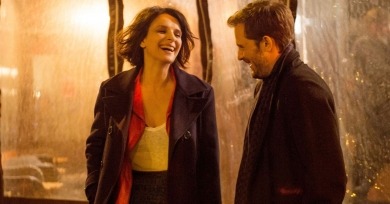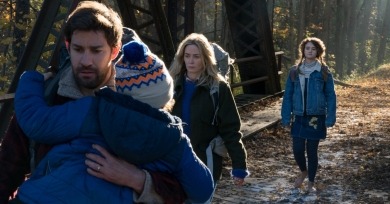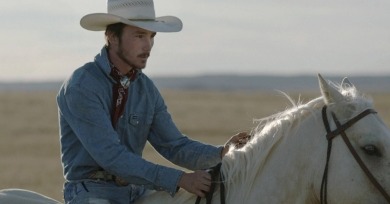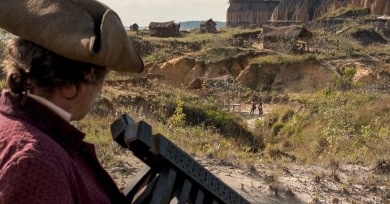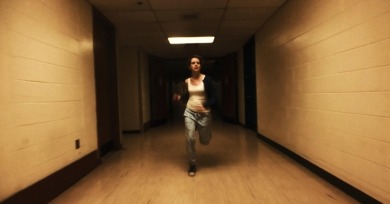Reviews
If Hong is indeed the best that we have got, there is something troubling about this fact. For it should detract nothing from the integrity of his body of work to say that, when taken altogether, it is a quintessential expression of a cinema of disappointment and diminished expectations.
Even the most resourceful, imaginative filmmaker would be hard-pressed to redeem the screenplay, specifically the lengths to which Cody goes to disguise the true nature of the story, and also the underlying reasons for the charade, which are unconvincing and in bad faith.
That Denis can produce a work that, without a trace of preciousness, is equal parts indebted to Barthes and Chicago blues, connected as arm is to shoulder to the film-historical legacy of post-New Wave French filmmaking, is only further justification for claim that the 71-year-old is the greatest working director over the last two decades.
Though it bears the markings of a gut-wrenching horror film, A Quiet Place is stubbornly optimistic about the existing order.
“It is a time when this country is under a lot of criticism, rightly so, and I have found my place in portraying certain things, but showing them to you in a way that you get to make your own judgment. And so far, I have been very moved that people want to see the good of this country.”
Gibson shows that filmmaking is an extension of a practice that is already proactive and lived. The evolving relationship between filmmaker and subject is retained implicitly in nearly every shot and interaction.
If one of the principal powers and pleasures of cinema is its ability to momentarily suspend thoughts or cares about what lies outside the frame, then Zama can be taken an object lesson in manipulation. Every strenuously controlled moment and movement constitutes an irresistible entreaty to simply go blank and watch.
Charlie is seeking both shelter and solace, but also a simple yet elusive thing: connection. This aligns him with all of the protagonists that writer-director Haigh has brought to the screen in a career that feels increasingly major with each new project.
As Soderbergh, in his mini-mogul practice, endeavors to hack out new routes leading around the established economic order of filmmaking, his films depict men and women doing their best to negotiate contingency plans for the perilous environment created by a carnivorous economy on the prowl.
The meticulously detailed wasteland that Anderson has created is rendered with his typical craft and care . . . Yet in ethnically delineating its humans, the film sets up a curious, racially coded divide between dogs and the Japanese.
Depardon is not out to expose naked cruelty, neglect, and dereliction of duty, as Wiseman and Wang do in their films, but something much more subtly invidious: the revolving-door efficiency of the state apparatus, mechanized service behind a blandly humane smile.
Black Panther is an unsettling experience. A sexy and entertaining blockbuster, the third feature by Coogler following Creed and Fruitvale Station is also a sad and perverse object. Its provocative ambiguity reveals itself only gradually.
Adapting the convoluted yet scant language of the text is in itself a catch-22: total fidelity to the novel risks attracting the same denunciations that flagged the author for decades; but disloyalty jeopardizes the respect of a dedicated fanbase.
The film thrives on translation, communication, and perception. Like the screwball comedies of yore, it revolves around a romantic conflict that its protagonist does not fully comprehend, though here this situation is reduced from the fanciful to the quotidian.


